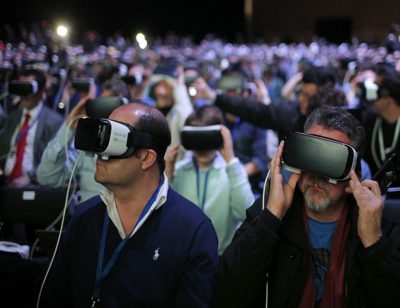Virtual reality has been around for many, many years. From early home console attempts which could be bolted onto a Super Nintendo (anyone remember the
VictorMaxx?), to those massive virtual reality units which appeared for a while in arcades. Until recently however the desire was a long way ahead of the technology. Possibly we are now seeing a point where technology has caught up enough to make virtual reality the next big thing.
With the UK release of th e Oculus Rift, a project which has been exciting the technology community for some time, many argue that home virtual reality has finally arrived. Cheaper projects like Google Cardboard demonstrate that even those who do not want to splash out mega bucks can get themselves a piece of the action. Alongside full virtual reality there has also been an explosion in competitively priced 360 degree cameras bringing a much broader accessibility to a more immersive video experience.
e Oculus Rift, a project which has been exciting the technology community for some time, many argue that home virtual reality has finally arrived. Cheaper projects like Google Cardboard demonstrate that even those who do not want to splash out mega bucks can get themselves a piece of the action. Alongside full virtual reality there has also been an explosion in competitively priced 360 degree cameras bringing a much broader accessibility to a more immersive video experience.
This is, of course, is only ‘virtual’ step one. To many, true virtual reality is a completely immersive experience you can walk, move and interact with. Liken it to the famous Holodeck of the Star Trek series. What we do have now though is a major step up from the past and a critical mass to iron out those remaining issues.
All this is very nice, but what does that matter for events?
Today’s technology could, and undoubtedly will over time, have an impact on what we understand as an event experience today.
What if you can sell a virtual ticket for your event to those with a disability which would normally impede their ability to attend? The experience might not quite be the same for a music event, nor can it ever really replace the handshake of a networking meeting, but facilitating access to events beyond the physical capacity is an exciting prospect for both the event organiser and attendee.
Or how would sponsors feel if they could replicate the excitement of a big product launch or latest artist after the event as part of their premium content? For training events there are many possibilities, enabling interactive and immersive sessions particularly suited to things like incident management and response, and also making virtual/remote training a more inclusive experience.
Needless to say, at this stage, the possibilities are exciting, things could go, virtually, anywhere (sorry!).

